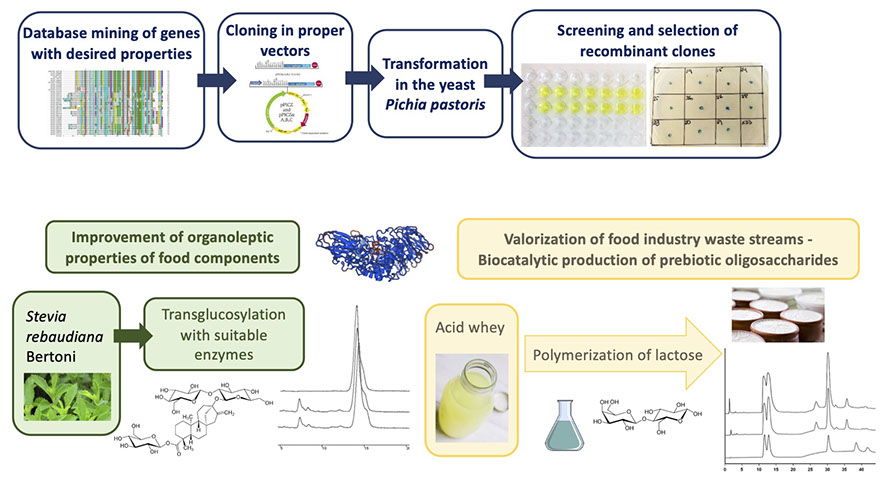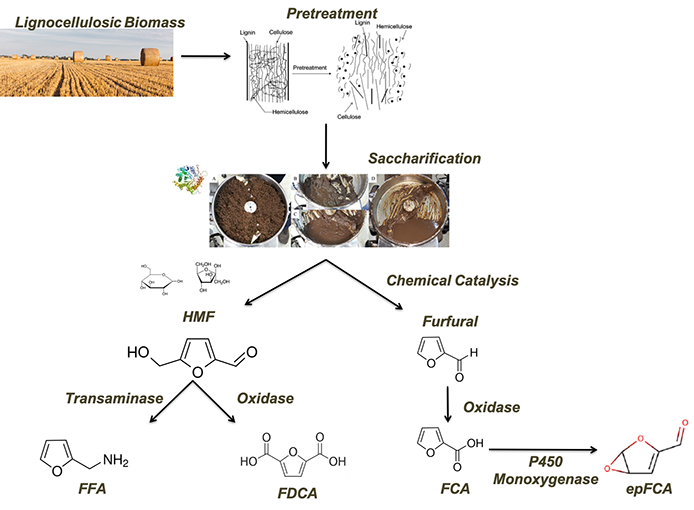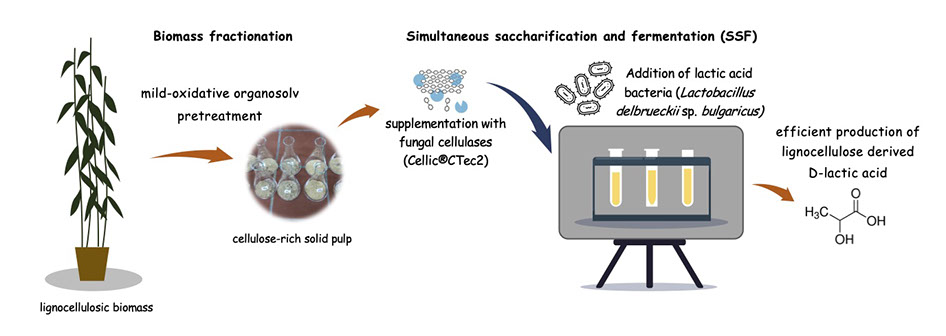
Application of enzymes in Food Industry

Valorization of lignocellulosic biomass for the bioconversion of furan monomers through novel biocatalytic enzymes
The continuously increasing energy need in modern societies, along with the depleting fossil fuel reserves, has made the emergence of a sustainable source imperative for the production of biofuels and chemicals. In this regard, lignocellulosic biomass, derived from agricultural and forestal residues, is an abundant renewable source of carbon, which also contributes to the reduction of the greenhouse gas emissions, without competing with the food industry. Our goal is to produce furan monomers such as 2,5-furandicarboxylic acid (FDCA), 2-furancarboxylic acid (FFA) and 2-furfurylamine (FFA) from lignocellulosic biomass by means of biocatalysis. However, the valorization of the lignocellulosic biomass includes several steps due to the complexity of the plant cell. The first step is the pretreatment process, which aims to increase the susceptibility of the material to hydrolysis. The second step is the hydrolysis process, where monomeric sugars are produced from the polysaccharides of cellulose and hemicellulose. In order to achieve the production of furan monomers, these sugars are converted to hydroxymethylfurfural (HMF) through chemical catalysis and dehydration. Then, HMF functions as a substrate for novel biocatalysts such as oxidases, monoxygenases and transaminases generated through heterologous expression in our lab. The subsequent furan derivatives are considered high added value chemicals which can also be the precursors towards bio-based polymers.

Biotechnological utilization of lignocellulosic biomass for the production of lactic acid and energy
Lactic acid is a natural organic acid with a long history of use in cosmetic and pharmaceutical industries, and moreover for the production of oxygenated chemicals, plant growth regulators, and special chemical intermediates. Apart from that, it is considered a specialty chemical with various applications both in the food and non-food industries. It has been utilized as a raw material in the production of biodegradable polylactide (PLA). Thus, the recent demand for PLA sharply increased the global interest in lactic acid production. To date, the successfully realized commercial production of lactic acid has involved the utilization of pure sugars or edible crops. Nevertheless, on account of concerns over feedstock costs and the limited worldwide food availability, lignocellulosic resources have become attractive and inexpensive raw materials for the production of lactic acid. Our aim is to find methods for utilizing lignocellulosic biomass for the ultimate purpose of producing lactic acid and energy under the optimum conditions, as well as useful metabolites through the action of suitable microorganisms. This research is based on the ability of specific bacterial strains to metabolize different sources of carbon, resulting in the production of products useful for the industry.

